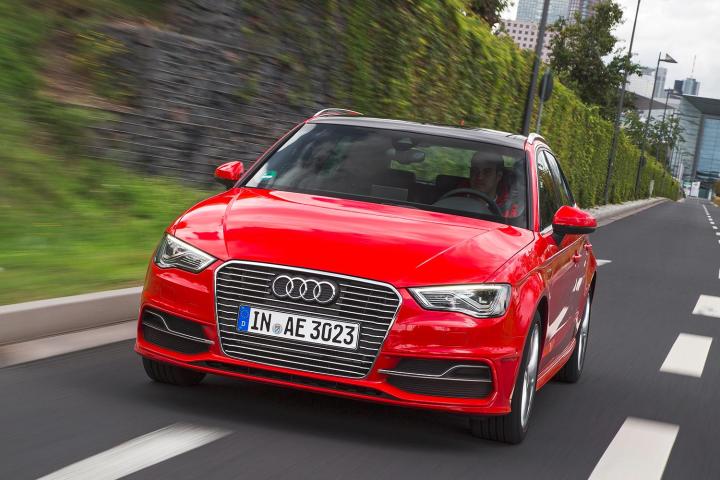
From the Toyota Prius to the Audi R18 e-tron quattro Le Mans racer, regenerative braking has become a common piece of automotive technology.
But why stop with braking (no pun intended)?
Audi is working on a system that uses heat energy recovered from a car’s suspension to provide electric power, Ulrich Hackenberg, the carmaker’s R&D chief, told Auto Express at a recent press event.
Hackenberg explained that the up-and-down motion of shock absorbers creates a considerable amount of heat. This energy normally dissipates into the atmosphere, but Audi hopes to recapture it with a generator attached to the shock.
This energy would be stored in batteries to help extend the electric range of a hybrid, or even be put to work in a conventional car.
It could, for example, be used to power electrical accessories in a similar manner to the i-ELOOP regenerative braking system developed by Mazda. It might also be useful in a “mild hybrid” – a powertrain that uses some electric power, but not enough to propel the car without an internal combustion engine.
Performance enthusiasts have a reason to be excited, too.
The regenerative suspension could actually work both ways, sending power back into the shocks to firm them up, creating a sportier ride. So not only could this system improve efficiency, it could also open the door to a whole new type of adjustable suspension.
The technology is still under development, but with Audi poised to launch an entire fleet of plug-in hybrids and possibly the R8 e-tron electric car (finally), don’t be surprised to see it on some model in the near future.
With electrified powertrains, an electric turbocharger, and now this juice-generating suspension, Audi really is singing the body electric.
Editors' Recommendations
- Audi Q6 e-tron ushers in the automaker’s next EV phase
- 2024 Audi Q8 e-tron first drive review: 300-mile luxury EV cruiser
- Audi ActiveSphere concept is part luxury sedan, part pickup truck
- 2023 Kia Sportage Hybrid first drive review: Style and substance
- Luxury cars continue to burn on abandoned cargo ship


